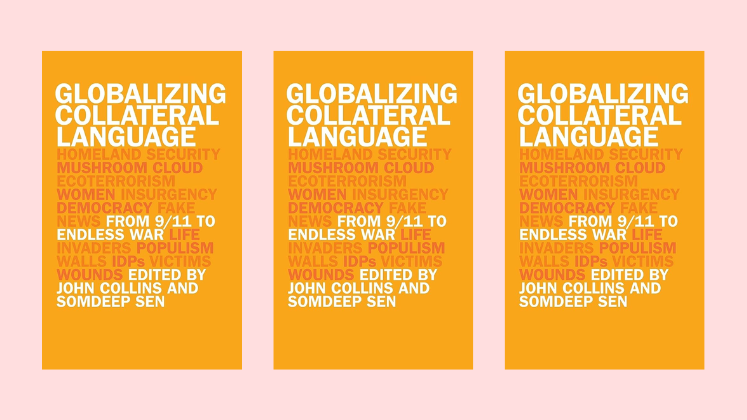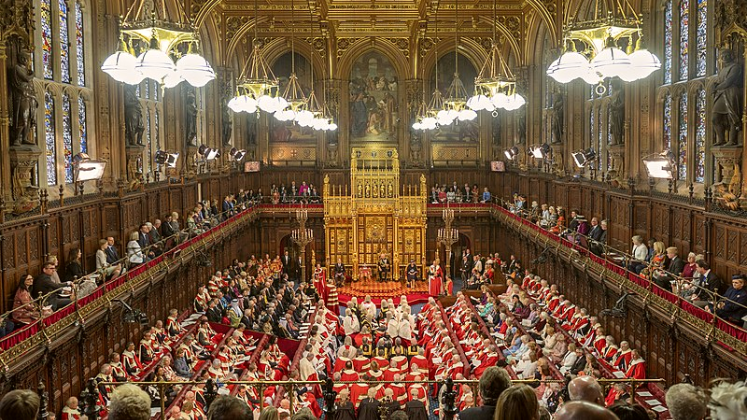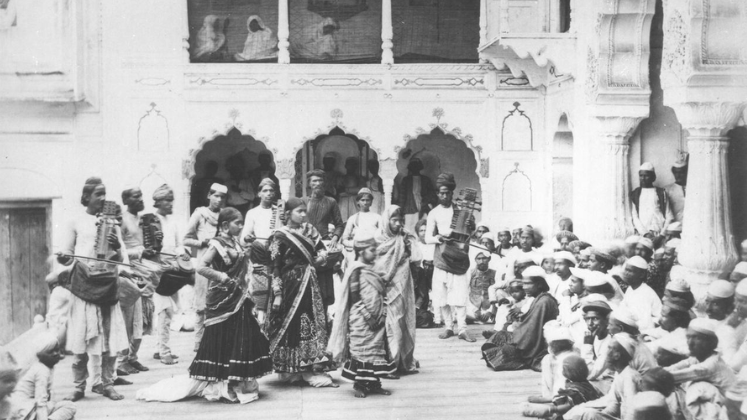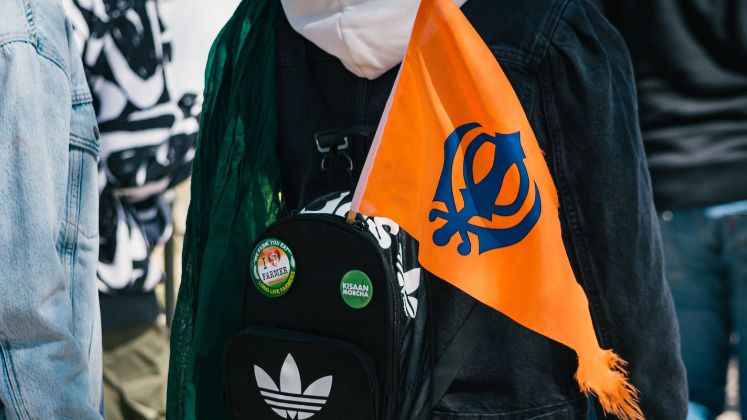As we approach the twenty-second anniversary of the 9/11 attacks, the day remains a pivotal moment in academic analysis. Here, Gulfer Ulas of the LSE Middle East Centre reviews “Globalizing Collateral Language: From 9/11 to Endless War” edited by John Collins and Somdeep Sen.

John Collins, and Somdeep Sen. “Globalizing Collateral Language: From 9/11 to Endless War.” University of Georgia Press, 2021, 196 pp., $27.95 hardcover (ISBN: 9-780-8203-6052-2).
Globalizing Collateral Language examines the deliberate use of language for political purposes in the years following 9/11. The book’s primary emphasis is elaborate on the effects of the 9/11 attacks globally, giving us a series of crucial chapters to understand political leaders’ discursive construction of specific terms. In exploring this, the book argues that language is not only a means of communication; it also produces particular narratives and causes political outcomes.
By paying a huge account to Orwellian “doublespeak”[1], the book essentially unfolds the collateral damage of using the lexicon to target civilians through different chapters. These include homeland terrorism (Latha Varadarajan), security and ecoterrorism (Chris Buck), democracy (Emanuele Saccarelli), fake news and media (Stephen R. Barnard), populism (Ilan Kapoor), women (Lotte Buch Segal), insurgency (George Ciccariello-Maher), and victims (John Collins, Paloma Elvira Ruiz, and Marina Llorente). Arranging the chapters by scholars from diverse disciplines, John Collins and Somdeep Sen thus attempt to gain a deeper understanding of the issues created by the collateral language in the aftermath of 9/11.
In framing its approach to language, the book centred on five fundamental principles of creating a lexicon in the post 9/11 world: manufacturing consent, the “what you hear is what you see” philosophy by Wittgenstein, generating a real and direct effect on targets, the profound effects of language and history, and the possibility of language.
The crux of the book is that political leaders influence people’s fear and paranoia with collateral language. In France, Greece, Turkey, and Austria, the rise of right-wing parties has tripled votes using such political language. Populists’ main argument, “we,” the “people,” versus “them,” an “enemy,” appeared to be successful (Chapter 10). In addition, the “invaders” depiction is commonly used by anti-immigrant intellectuals (Chapter 9). As an illustration of this, Trump’s social media campaign message “We have an invasion!” had increasing headlines in the media. As such, Trump uses the symbolism of a “wall” for the Mexico border to represent a division in linguistic stance.
Chapter 7 is another reminder of the fruitful link between extreme political parties and the broadcast media. Fake news manipulates the media to share information in a particular direction. Ultimately, populists create a collateral language where refugees and minorities are persecuted, academics are threatened, and journalism is restricted. Chapter 11 also shows how apolitical terminology builds political rhetoric. The term “axis of evil” and “war on terror” refers to Al-Qaeda, for example, produced in legitimising the invasion of Iraq in 2003.
Notably, Orwell’s pamphlet, “Politics and the English Language,” finds a fundamental place in the book. Orwell, in 1946 argues, “All issues are political, and politics is a mass of lies, evasions, folly, hatred, and schizophrenia. The great enemy of clear language is insincerity. When there is an insincerity between one’s claim and aim, the words turn instinctively to long words” (Orwell, 1946, pp. 15). Chapter 12 is devoted to the internally displaced people in the example of Sri Lanka, showing how politicians used the language during wartime in Sri Lanka following the British colonisation in 1796.
While the language cultivates fear and targets civilians globally, the book also supplies excellent examples regarding the discourses on women (Chapter 4). The “save” Middle Eastern women trope indicates a stereotyping of women as part of a European project. With this in mind, in Denmark, Muslim women are defined as “problems” by right-wing politicians, and in Spain, the leader of the Spanish Socialist Workers’ Party (PSOE), Pedro Sánchez, emphasised the gendered killings of women and created the term of terrorismo machista (male chauvinism).
The book’s most disappointing feature is its lack of solid engagement with the 9/11 collateral language on politics and global issues. The book argues that political speech has organically developed through globalisation, and political leaders deliberately use popular language to affect the masses. In itself, the observations in the book are significant. Yet, an issue arises when the authors make generalisable claims based on specific countries. At the same time, this may lead to interpreting all world politics within the same concept.
Further, one could easily defend that replacing some words could be a silver bullet for a positive change in global politics.
Another significant issue pertains to the book’s idea. While the book briefly covers international issues, the primary impression of the book is that its focus will be on security-related subjects and their elaborations.
Nevertheless, the book’s findings through different chapters are essential on a standalone basis. The book is based on comprehensive headlines to test the increased collateral language of politicians in the 9/11 era. However, while the book argues that various dimensions of global events occurred organically, it appears some governments deliberately produce some terms and discourses for political purposes (e.g., in America, Hungary, Turkey, and India). One can defend that 9/11 has been a turning point since Samuel P. Huntington’s The Clash of Civilizations (1996) thesis, which posits a conflict between cultural and religious identities. The book devotes particular attention to the events “before” and “after” 9/11. Indeed, the UNSC established the “fight against terrorism” a few weeks after 9/11. As such, jihadi terrorism became a new mantra for states to depict a new global security problem within the globalisation context and the contemporary lexicon.
Ergo, the book is a good summary of collective scholars’ work to combine and demonstrate the effectiveness of language. Overall, the authors show that globalisation tremendously impacts language and changing politics.
[1] George Orwell’s “doublespeak” attributes totalitarian regime’s warping words to gain and retain political power. (e.g., “War is peace. Freedom is slavery. Ignorance is strength.” in Orwell’s dystopic novel “1984”)





